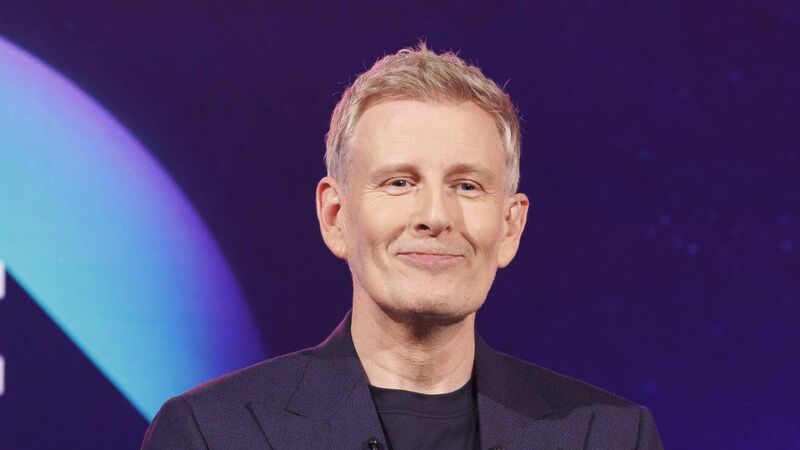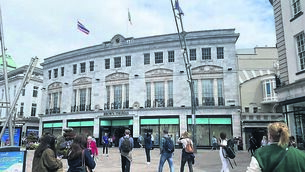Affable Patrick Kielty in the frame but can he pull it off every Friday night?

Host Patrick Kielty presenting his first Late Late Show on Friday.
They’re about ten years younger than me and one of them disclosed that she hasn’t seen the programme since Gay Byrne’s final edition of Europe’s longest-running chat show.
Her husband is averse to RTÉ as he thinks it’s just a bunch of friends plugging each other’s books and other achievements, including programmes they’re starring in.
And so, while my friends listened to music on Spotify and viewed something on Netflix, I tuned into The Late Late Show on my laptop.
It’s an age thing. I grew up with The Late Late Show and it’s my default programme when I’m at home on a Friday night. You never know what will happen.
But, as is often the case, the guest list was a bit of a disappointment last week.
Tommy Tiernan and Hector Ó hEochagáin present programmes on RTÉ so it was all a bit in-house having these lads as the first bunch of guests, along with their podcast colleague, Laurita Blewitt.
There were a few laughs. And Kielty segued into a more serious tone when former president, Mary McAleese, joined the guests. He wondered about McAleese’s take on Leo Varadkar’s comment that he expected to see a united Ireland in his lifetime. She said that a lot of people were killed in the north before the Anglo Irish Agreement was hammered out, and acknowledged Kielty’s father’s murder at the hands of the Ulster Freedom Fighters (UFF). It was an emotional moment.
Kielty seemed generally a little bit vulnerable, notwithstanding his irreverent digs at RTÉ, mentioning things like ‘barter accounts’ and Joe Duffy and his nemesis, The Wolfe Tones.
They are part of the revolving door that guarantees them air time and TV spots in this country, that is spilling over with chat shows on radio and television.
Has the chat show eaten itself? How often do we have to suffer the Brennan brothers, Daniel O’Donnell, and all those other staples of The Late Late Show?
Will Kielty interview those examples of over-exposed personalities, or is there any attempt to rethink Ireland’s premier chat show?
On the basis of last Friday’s show, nothing has really changed, although Kielty’s opening monologue, full of gags, was in the mode of American talk show warm-ups – and it worked very well.
But he’d want to demand better guests. However, the programme doesn’t attract the kind of A-listers that go on The Graham Norton Show.
Perhaps The Late Late Show could revert to what it was like in Gay Byrne’s days, when the topic du jour was thrashed out by a lively panel of controversialists.
It has been said that, thanks to Gaybo, there is very little left in Irish society that is taboo. But what about really looking at issues such as climate change, or should I say ‘climate catastrophe’, and the race to save the planet?
To make it more real, why not frame the environmental movement as the effort to save humanity? Because that’s what it boils down to.
Researchers on The Late Late Show should identify strident young voices that could appeal to the powers-that-be to quit using fossil fuels. It could make for interesting television.
And that’s the only way people will stay with The Late Late Show. We deserve more than the usual ding dong.
Gaybo’s guests on his first Late Late Show on July 2, 1962, included a TV critic Ken Grey, Count Cyril McCormack, an eccentric jazz musician George Hodnett, and Harry Thuillier, an Irish broadcaster and former Irish Olympian fencer. They were not household names.
This was largely because the public was expecting a variety show rather than a talk show.
But ultimately, The Late Late Show, under Gaybo’s stewardship, was a success.
Patrick Kielty’s first Late Late Show revealed an empathetic presenter. All he needs are good guests.
But maybe that’s too much to hope for?







 App?
App?




